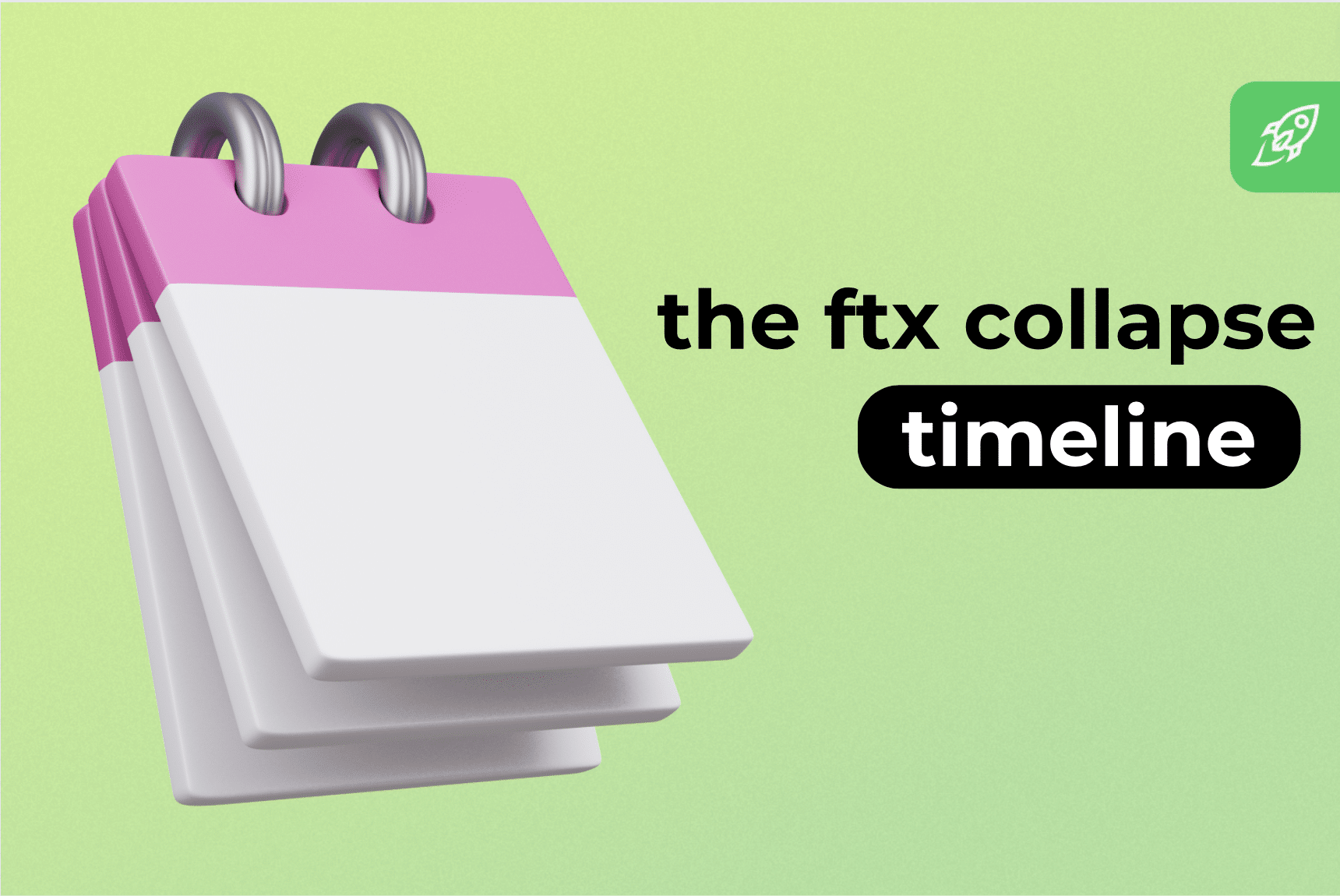In recent years, the meteoric rise and the catastrophic fall of FTX have captured the attention of many people worldwide and created some urgent questions about the stability and regulation of the cryptocurrency industry. Central to that whole saga was Sam Bankman-Fried, the founder of FTX, whose actions and subsequent legal entanglements have had profound implications for the market.
Who Is Sam Bankman-Fried and What Is FTX?
Sam Bankman-Fried, commonly referred to as SBF, is a significant figure in the cryptocurrency world. He is the founder of FTX, a cryptocurrency exchange that quickly became one of the largest and most influential platforms in the crypto space. Known for his curly hair and often seen wearing shorts and T-shirts, Bankman-Fried used to have quite a good reputation in the past: he was famous not just for his casual demeanor but also for his sharp intellect and ambitious plans in the crypto industry.
FTX, launched in 2019, was designed to offer innovative products, including derivatives, options, and other sophisticated trading products, which appealed to a global base of customers. The platform gained fame for its user-friendly interface, powerful trading features, and strong emphasis on security. FTX stood out in the crowded marketplace by venturing into sports and esports sponsorships, carving out a mainstream presence that few other crypto entities managed to achieve.
What Did Sam Bankman-Fried Do?
The story took a dramatic turn in late 2022, when FTX collapsed under the weight of financial mismanagement and allegations of using customer funds to cover debts from other ventures within Bankman-Fried’s crypto empire, primarily the trading firm Alameda Research. This downfall not only affected millions of investors but also sent shockwaves across the financial markets, leading to broader discussions about the regulation and stability of the cryptocurrency market. Now, let’s take a closer look at how it all went down.
Early Warning Signs and the Initial FTX Collapse
November 2, 2022: The first public sign of trouble emerged when Coindesk reported that Alameda Research, Bankman-Fried’s trading firm, held a significant amount of FTT, a native token of FTX, indicating potential financial instability. This revelation spooked the market, leading to a rapid decline in FTT’s value.
November 6, 2022: The situation escalated when Binance, a rival crypto exchange, announced it would liquidate its FTT holdings due to concerns about FTX’s financial health.
November 8, 2022: Binance had initially proposed a takeover of FTX, which had been experiencing severe liquidity issues. However, after reviewing FTX’s books, Binance retracted its offer, citing insurmountable financial problems.
November 9, 2022: The cryptocurrency market reacted violently, with Bitcoin and other cryptocurrencies plummeting in value as confidence in the market waned.
November 11, 2022: FTX filed for Chapter 11 bankruptcy, and Bankman-Fried resigned as CEO. John Ray III was appointed as the new CEO to manage the restructuring process.
Legal Entanglements and Further Revelations
November 27, 2022: Further investigations reveal misuse of FTX’s corporate funds, including for real estate purchases and donations.
December 12, 2022: Sam Bankman-Fried is arrested in the Bahamas as U.S. authorities issue charges for multiple financial crimes, including fraud and money laundering, signaling the start of intense legal scrutiny.
December 13, 2022: The U.S. government formally charges Bankman-Fried, alleging a complex scheme to defraud FTX customers and investors, using their funds for unauthorized personal expenses and risky trades at Alameda Research.
December 22, 2022: Amid the legal proceedings, Bankman-Fried’s parents sign a $250 million bond, agreeing to house arrest as he awaits trial in California, reflecting the gravity of the charges and the potential flight risk he poses.
Court Proceedings and Conviction
January 15, 2023: Pre-trial hearings bring to light the chaotic internal management practices and lack of proper accounting at FTX.
August 11, 2023: A judge revokes Bankman-Fried’s bail and orders jail time after concluding he tried to influence witnesses against him, highlighting ongoing concerns about his interference in the judicial process.
October 3, 2023: Jury selection begins, setting the stage for a high-profile trial that would captivate and concern investors and regulators alike.
October 27, 2023: Bankman-Fried takes a stand in his own defense during the trial, acknowledging operational failures at FTX but denying any fraudulent intentions, a statement that would later be scrutinized against the weight of evidence presented.
November 3, 2023: The jury convicts Bankman-Fried of fraud, marking a significant milestone in the legal saga and setting a precedent for accountability in the cryptocurrency industry.
March 28, 2024: Sam Bankman-Fried is sentenced to 25 years in prison, concluding the judicial proceedings.
Where Is Sam Bankman-Fried Now?
At the time of writing, Sam Bankman-Fried was headed to prison to serve his 25-year sentence. Considering the length of said sentence, he will likely stay in the same position for a while.
After and during his sentencing, SBF said many times that he greatly empathizes with the victims of his fraud case and believes they should be paid back in full. He also emphasized that he never intended to hurt anyone or take anyone’s money — though it is up to everyone to decide whether they believe his words or not.
Did FTX Users Lose Money?
Yes, FTX users did lose money initially when the cryptocurrency exchange collapsed in 2022 due to mismanagement and illegal use of customer funds. However, the situation for former customers has improved significantly. FTX, under new management, has been working through bankruptcy proceedings to resolve claims and return funds to affected users.
There is a plan in place that could see FTX.com and FTX.US customers recover approximately 90% of their assets by mid-2024. This recovery plan is pending approval by the U.S. Bankruptcy Court. Additionally, there’s optimism that customers might eventually be repaid in full, although this outcome depends on various factors, including the recovery of assets and legal proceedings.
How Did Sam Bankman-Fried’s Trial Affect the Crypto Market?
Although the saga of the FTX collapse has now (at least, seemingly) finally ended, it will certainly have a long-lasting impact that the crypto industry will feel for years. It’s hard to say just how serious the consequences of these proceedings will be, but the FTX case clearly has grave implications for all cryptocurrency businesses, as it has ruined whatever goodwill was built up before the FTX collapse and the Sam Bankman-Fried arrest.
The FTX collapse has significantly influenced regulatory and investor perceptions of the cryptocurrency market. First and foremost, it has highlighted the need for better regulatory frameworks. Governments and financial bodies around the world are now more inclined to implement stringent regulations governing the operations of crypto platforms to ensure better transparency and accountability.
Moreover, the confidence of investors in cryptocurrency markets has been shaken. The notion that crypto investments were safe from traditional financial risks has been dispelled, leading to a more cautious approach from both institutional and retail investors. This shift has affected the liquidity and volatility within the market, with some cryptocurrencies experiencing price drops and decreased trading volumes.
In addition to affecting investor confidence and regulatory approaches, the trial has forced crypto businesses to reassess their operational and ethical frameworks. Many companies now prioritize compliance and governance, aware that any oversight could lead not only to financial loss but also to severe legal repercussions. This shift towards greater compliance and transparency might slow down the innovative pace of the industry but could lead to a more stable and reliable market in the long term.
Overall, while the trial of Sam Bankman-Fried has cast a shadow over the cryptocurrency market, it also offers an opportunity for the industry to mature, emphasizing the need for stronger governance, compliance, and transparency. These changes are likely to continue reshaping the crypto industry.
Disclaimer: Please note that the contents of this article are not financial or investing advice. The information provided in this article is the author’s opinion only and should not be considered as offering trading or investing recommendations. We do not make any warranties about the completeness, reliability and accuracy of this information. The cryptocurrency market suffers from high volatility and occasional arbitrary movements. Any investor, trader, or regular crypto users should research multiple viewpoints and be familiar with all local regulations before committing to an investment.


